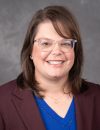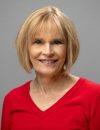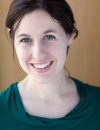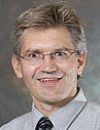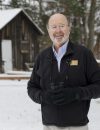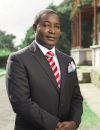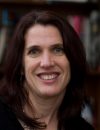-
The New York Times
|
December 17, 2019
Does the comics legend Lynda Barry’s MAKING COMICS (Drawn & Quarterly, 200 pp., $22.95) belong on a list full of more traditional narratives? The newly minted MacArthur genius teaches “interdisciplinary creativity” at the University of Wisconsin, and this slim volume — mimicking the feel of the composition notebooks that she requires her students to keep — initially appears to be a glorified lesson plan.
-
The Guardian
|
December 17, 2019
“There were folks not too long ago who felt the atmospheric transport route was not too important,” says Martin Shafer, principal researcher with the National Atmospheric Deposition Program (NADP), based at the University of Wisconsin-Madison. “The data belies that statement.”
-
Science Magazine
|
December 17, 2019
Two years later came VonMarkle. “I heard about this woman in the adult neurocritical care unit who was seizing, seizing, and wouldn’t respond,” says David Hsu, a pediatric neurologist at the University of Wisconsin.
-
Wisconsin State Journal
|
December 16, 2019
When Michele LaVigne’s mother died about two years ago, she gave a certain amount of money to each of her five children to be put toward some educational cause.
It was a fitting gesture by Marion LaVigne, who had taught math to middle school-age children for 49 years in New York. Michele LaVigne knew what she was going to do with her money the day she attended an event honoring jazz musician Richard Davis, where she heard how much he enjoyed being an educator and how a teacher in the Chicago Public Schools had inspired him.
LaVigne, a clinical law professor at the University of Wisconsin Law School who takes jazz piano lessons, said she decided to pursue a jazz residency at Sherman Middle School, hoping it would inspire students.
-
Inc.com
|
December 16, 2019
For years, the Badger State bemoaned its post-graduation “brain drain” from schools such as University of Wisconsin-Madison. Now, a burgeoning startup scene, plentiful tech jobs, and an abundance of remote work are compelling graduates to stick around and enjoy the city’s vibrant culture and reasonable cost of living.
-
The Cap Times
|
December 16, 2019
It can take a dozen times of trying a vegetable before a child learns to like it. That’s not a risk some lower-income parents can take, no matter how many vitamins are in beets.
“That’s one thing schools can be useful for,” said Jennifer Gaddis. Parents “maybe knew over time their kids would like something,” Gaddis said. “But in the immediate term, they couldn’t afford their kids not eating.”
-
The New York Times
|
December 16, 2019
Quoted: Dr. Gretchen Schwarze, a vascular surgeon at the University of Wisconsin-Madison who studies doctor-patient communications, has too often heard patients say they had no choice but surgery, or were blindsided by how debilitated they felt afterward.
-
National Geographic
|
December 16, 2019
Quoted: Tony Goldberg, a wildlife disease expert at the University of Wisconsin-Madison, puts mussels’ importance more bluntly. Without them, he says, “the freshwater ecosystem will change forever.”
-
Wisconsin State Journal
|
December 16, 2019
UW-Madison nursing student Cassie Dietrick graduates Sunday, and she cannot pinpoint the School of Nursing building on campus.
-
Wisconsin State Journal
|
December 16, 2019
Raise a glass to freedom. Raise a glass to all of us. Telling the story of today. Those slightly modified lyrics to “The Story of Tonight” from the musical “Hamilton” kicked off Lisa Kamal’s speech to her fellow graduates and a crowd of more than 7,000 people Sunday at the Kohl Center for UW-Madison’s 2019 winter commencement ceremony.
-
Wisconsin Public Radio
|
December 12, 2019
Christine Whelan, a clinical professor of consumer science at the School of Human Ecology, is the guest.
-
WUWM
|
December 11, 2019
Quoted: UW-Madison professor of chemistry Bassam Shakhashiri knows both the history of the table, and its modern relevance. He says the table came about through a collaboration of a few scientists but that Dmitri Mendeleev properly gets much of the credit.
“Dimitri Mendeleev, the Russian chemist, he proposed — sometimes people say he discovered — the pattern of similar behavior [of certain elements] and arranged them,” Shakhashiri explains.
-
Wisconsin Public Radio
|
December 10, 2019
Quoted: As winter asserts its dominance with a new cover of white over major portions of Wisconsin, Brody and Jill Thein-Nissenbaum offer tips about how to stay safe while shoveling. Thein-Nissenbaum is an associate professor in the University of Wisconsin-Madison Doctor of Physical Therapy Program.
-
Associated Press
|
December 9, 2019
Kathleen Culver, a professor of journalism ethics at the University of Wisconsin in Madison, said she’s concerned about the extent to which Bloomberg reporters feel intimidated about their boss’ remarks.Culver said she understands Bloomberg’s reluctance to step fully away from the company he created, but he might want to look at ways to completely disassociate himself with Bloomberg News at this time.
-
60 Minutes
|
December 9, 2019
Not everyone agrees. A 2017 survey at the University of Wisconsin-Madison asked 1,600 members of the general public about their attitudes toward gene editing. The results showed 65 percent of respondents think gene editing is acceptable for therapeutic purposes. But when it comes to whether scientists should use technology for genetic enhancement, only 26 percent agreed.
-
The Washington Post
|
December 9, 2019
Since the National School Lunch Program was created in 1946, it has had a flawed funding model that relies on children’s payments to supplement federal funding. This ultimately puts pressure on local school administrators to go after families with unpaid school lunch bills, or “lunch debt,” to balance budgets.
-Jennifer Gaddis is assistant professor of civil society and community studies at the University of Wisconsin-Madison and author of “The Labor of Lunch: Why We Need Real Food and Real Jobs in American Public Schools.”
-
NBC News
|
December 6, 2019
Quoted: This could be especially problematic if birds are unable to adapt quickly enough in the face of global warming, said Stanley Temple, a professor emeritus of forests and wildlife ecology at the University of Wisconsin-Madison, who was not involved with the study.
-
Reuters
|
December 6, 2019
Quoted: More than 20 years ago, John Magnuson, a longtime researcher of inland waters at the University of Wisconsin-Madison, was scouring the world for climate observations taken before the 1840s when he remembered Suwa.
-
Wisconsin Public Radio
|
December 5, 2019
The city of Madison is teaming up with the University of Wisconsin-Madison to identify the problems that come with climate change and ways to adapt to them.
-
Newsweek
|
December 4, 2019
Noted: The local universe is the section of the cosmos that can be observed in the most detail, according to the University of Wisconsin-Madison Department of Astronomy. Thus most of our knowledge about the universe comes from this region.
-
Chemistry World
|
December 4, 2019
Environmental health scientist Sean Scott of the University of Wisconsin-Madison and colleagues found that lead levels in bones taken from three cemeteries in Londinium may be more than 70 times higher than those in remains from pre-Roman Iron Age Britain.
-
The New York Times
|
December 3, 2019
Quoted: “What the Chinese government is doing should be a warning to everybody who kind of goes along happily thinking, ‘How could anyone be worried about these technologies?’” said Pilar Ossorio, a professor of law and bioethics at the University of Wisconsin-Madison.
-
Wisconsin Public Radio
|
December 3, 2019
Quoted: Peter Goff, an assistant professor of educational leadership and policy analysis at the University of Wisconsin-Madison, said this sort of grading system could have potential for addressing the gap in graduation rates among white and black students.
-
Wisconsin Public Radio
|
December 2, 2019
Quoted: Rebecca Klaper, a professor at the School of Freshwater Sciences at the University of Wisconsin-Milwaukee, told WPR that the push for straw bans came after a video of a sea turtle with a straw stuck in it’s nose went viral.
-
National Geographic
|
December 2, 2019
Quoted: “It’s like an apartment building of sorts,” explains Jordan Gerth, an atmospheric scientist at the University of Wisconsin, Madison. “There’s some general expectation that everybody keeps relatively quiet.
-
WSJ
|
December 2, 2019
“Farmers had prepared themselves for three-year cycles, but not five,” said Mark Stephenson, director of Dairy Policy Analysis at the University of Wisconsin-Madison.
-
Los Angeles Times
|
December 2, 2019
Quoted: The motivation behind those attacks is unclear. But David Drake, a wildlife biologist with the University of Wisconsin-Madison Urban Canid Project, ventured a guess.
-
National Geographic
|
November 27, 2019
Quoted: “It’s like an apartment building of sorts,” explains Jordan Gerth, an atmospheric scientist at the University of Wisconsin, Madison. “There’s some general expectation that everybody keeps relatively quiet.
-
Wisconsin Public Radio
|
November 27, 2019
Quoted: “The number of births and the birth rates are at some of the lowest levels since the mid-70s. We haven’t seen this pattern for over 40 years,” said David Egan-Robertson with the University of Wisconsin-Madison’s Applied Population Lab.
-
Science Magazine
|
November 27, 2019
And given that e-cigarettes vary more than conventional cigarettes in their chemical composition, “We’re asking medical science to do a huge, heavy lift” to pinpoint health impacts across people, says James Stein, a preventive cardiologist at the University of Wisconsin in Madison.

